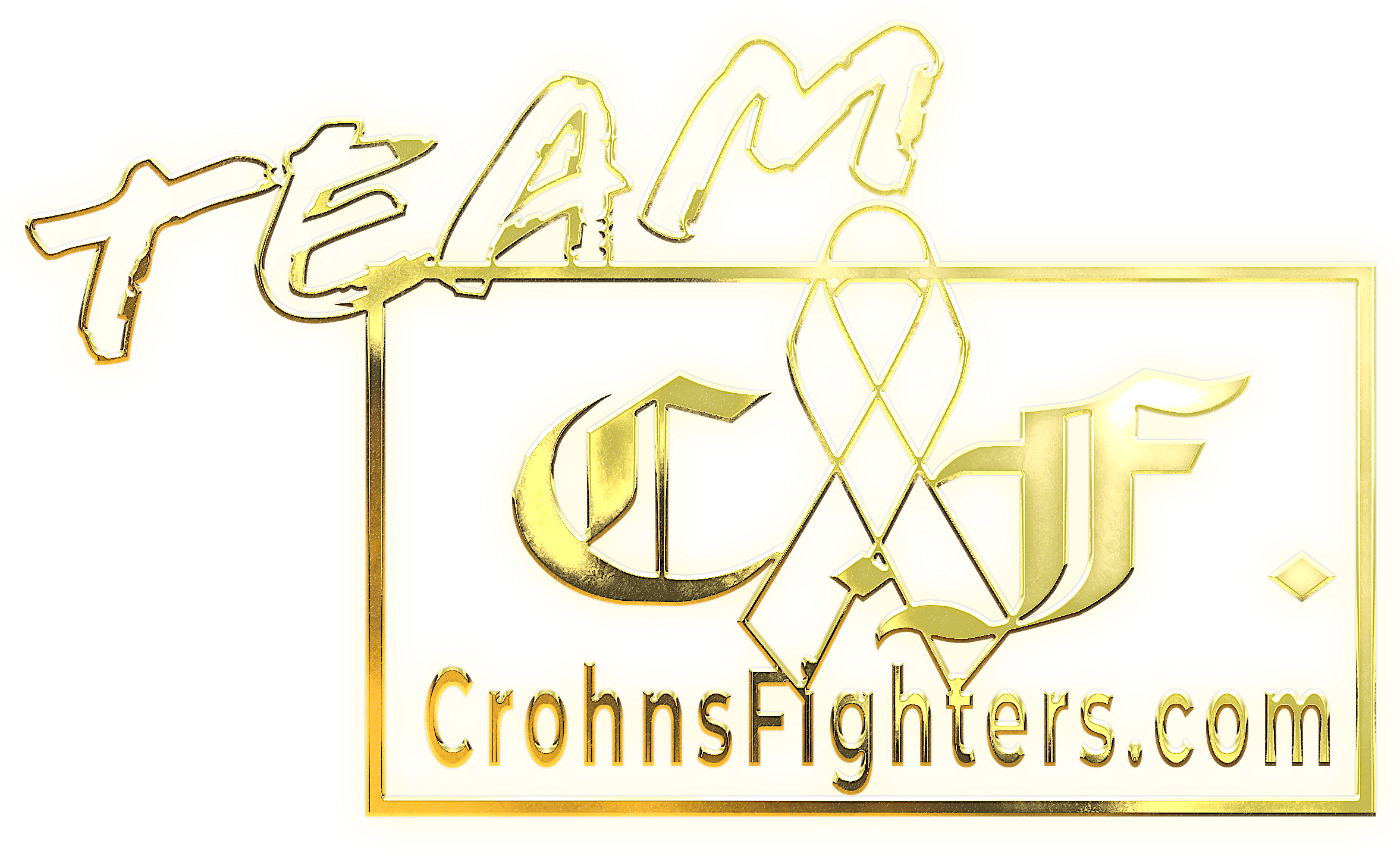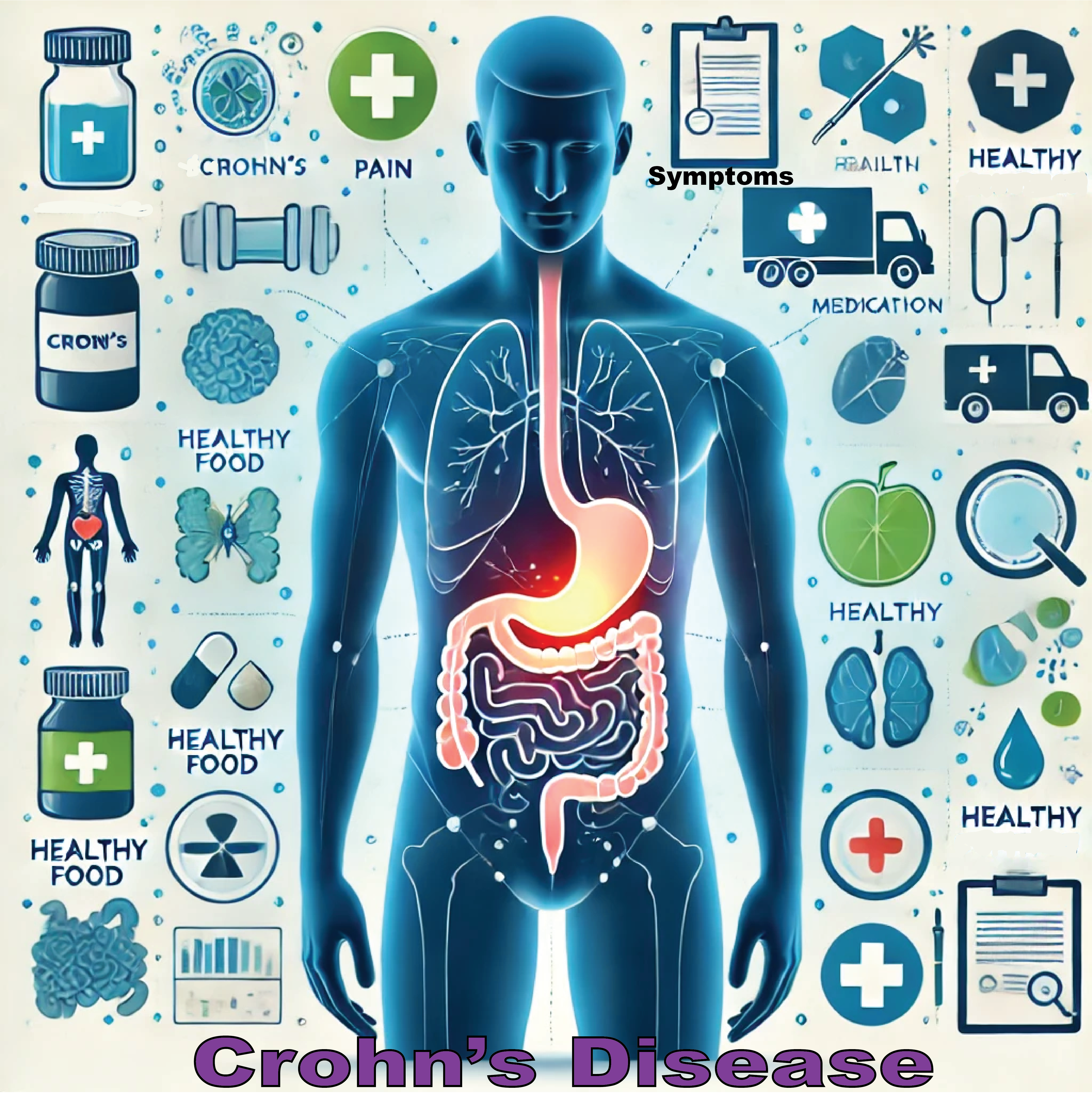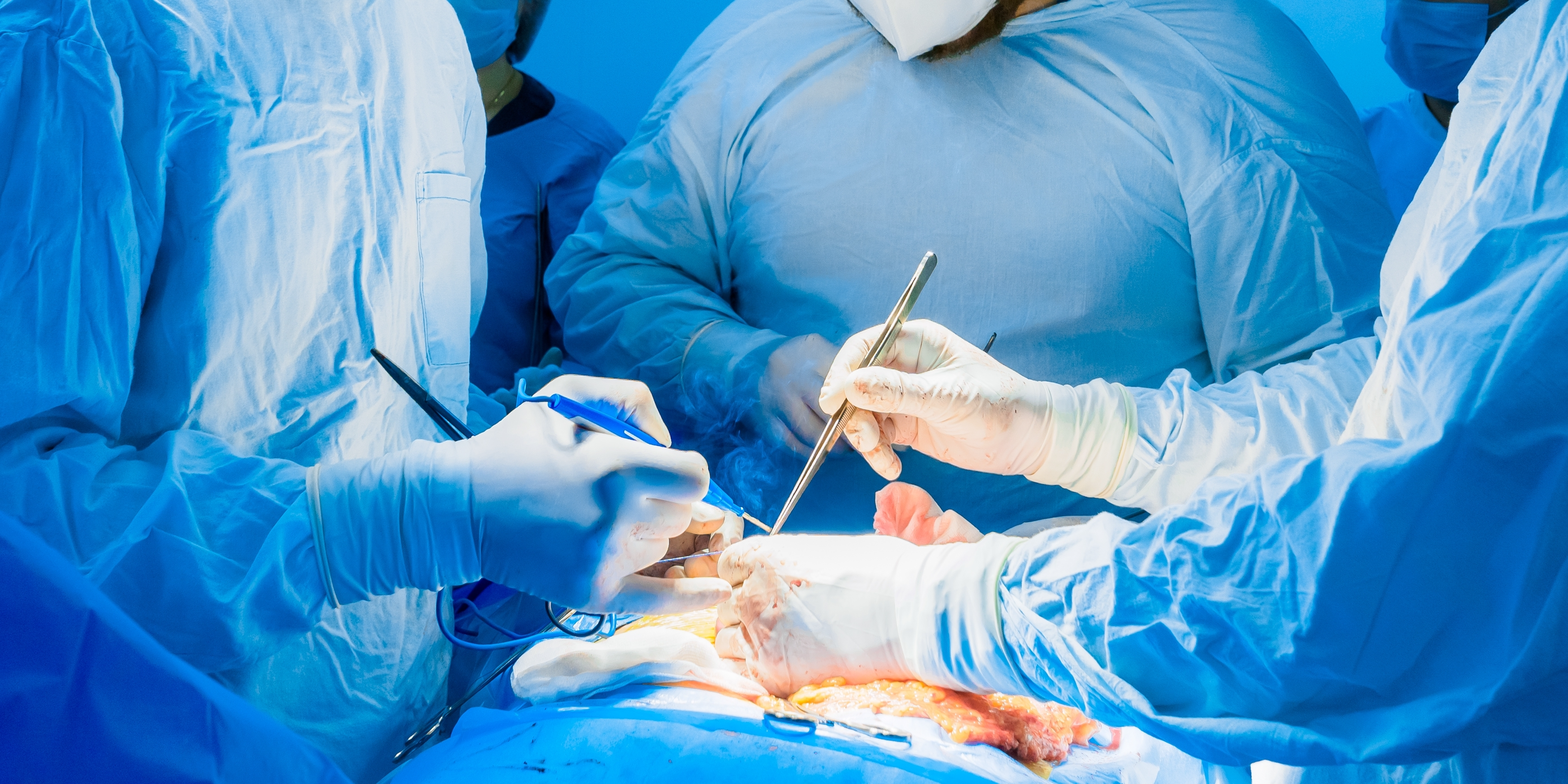Understanding of Crohn’s
IBD- Inflammatory bowel disease (IBD) is a term used to encompass disorders involving chronic intestinal inflammation. These conditions are typically classified as either Crohn’s disease or ulcerative colitis based on clinical features, colonoscopy findings, histologic changes, and the anatomical distribution of disease. In some cases, however, overlapping features are noted.
Ulcerative colitis- A chronic disease of the large intestine, in which the lining of the colon becomes inflamed and develops tiny open sores, or ulcers. This condition is the result of your immune system’s overactive response.
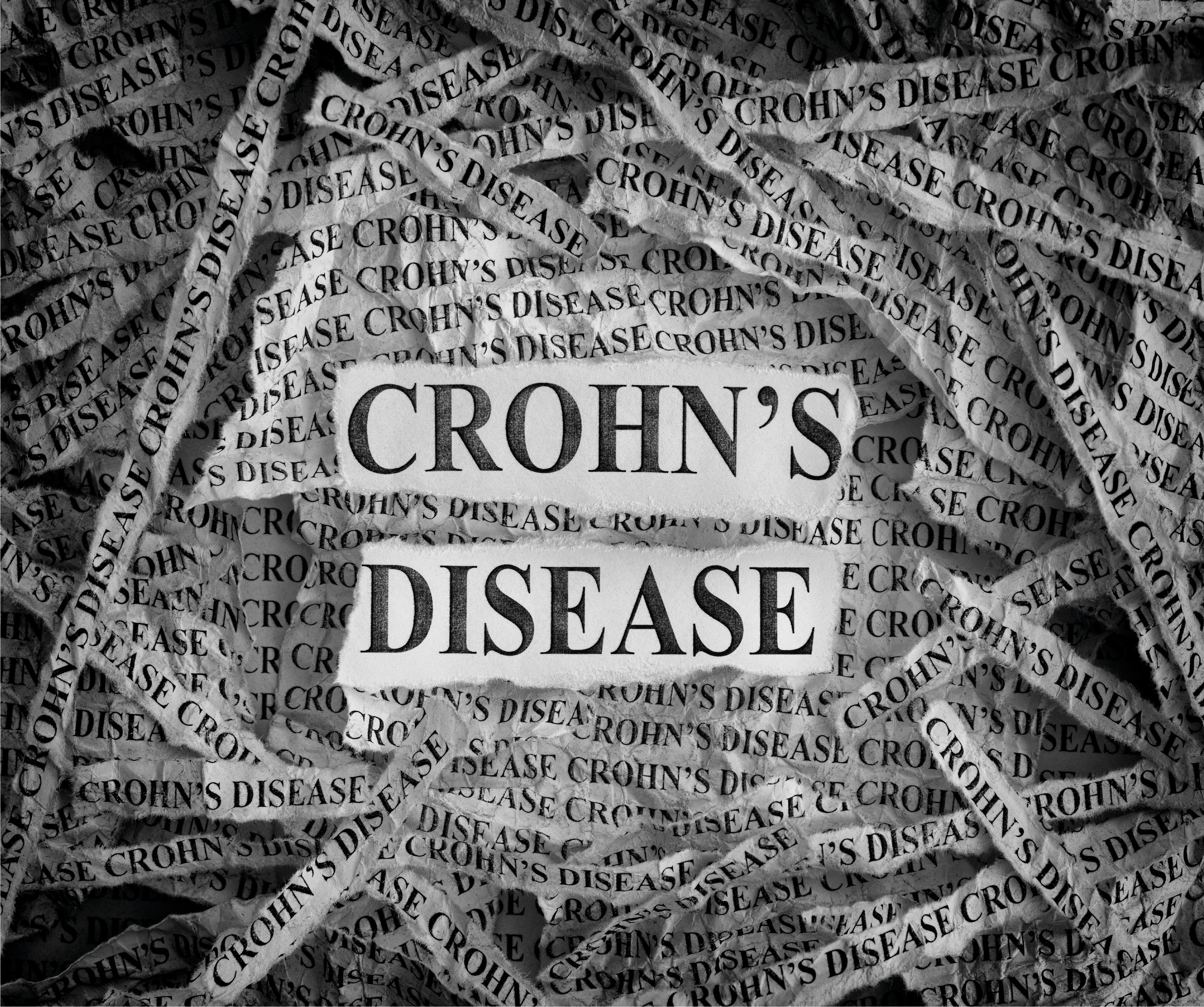
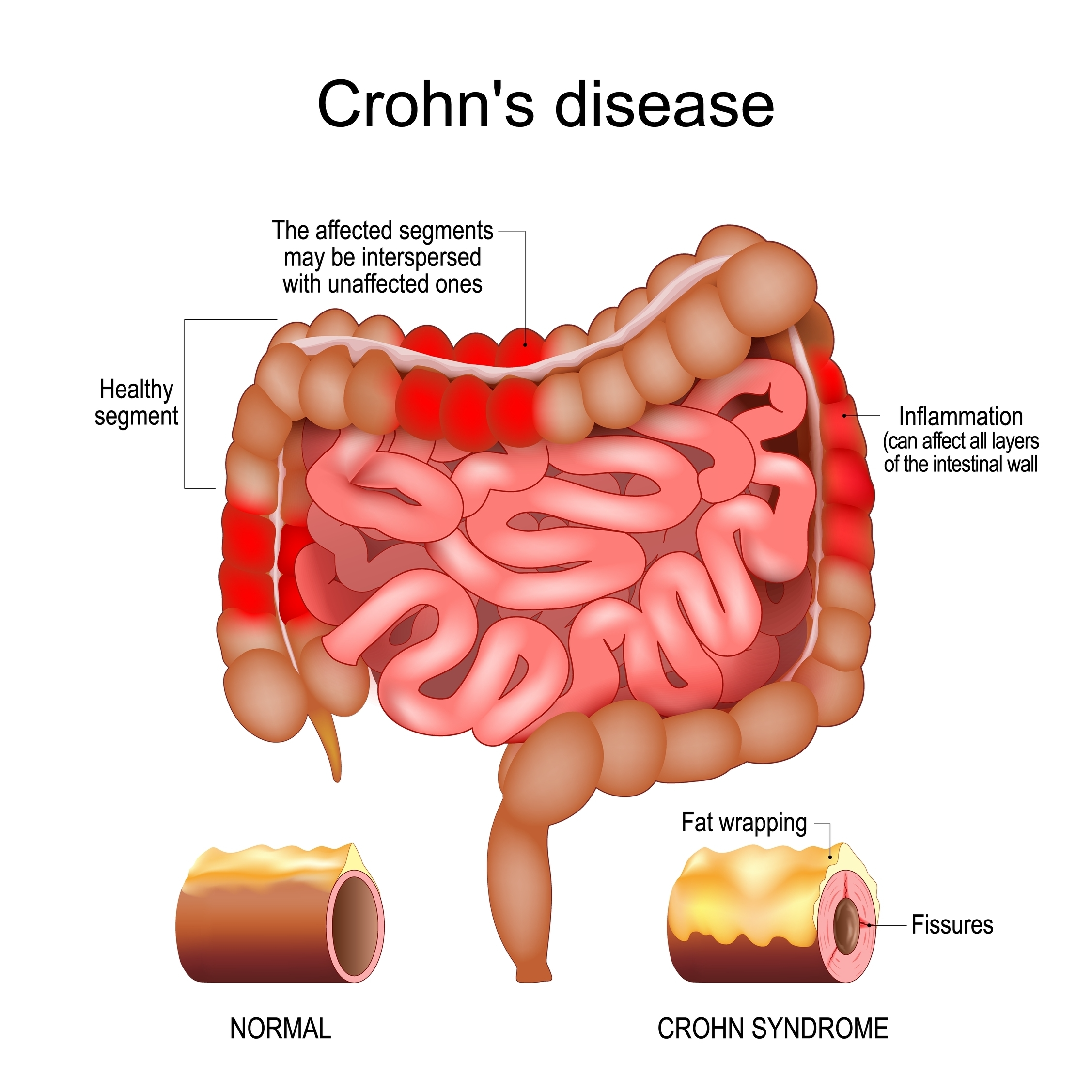
Get Informed About Symptoms, Causes, & Treatments
Living with Crohn's
SYMPTOMS & DIAGNOSIS
Common symptoms of Crohn’s disease include persistent diarrhea, abdominal pain, and cramping, often accompanied by fatigue, weight loss, and reduced appetite. Some people may also experience fever, anemia, and joint pain. Less common symptoms can include inflammation of the eyes, skin disorders, and delayed growth in children. Additionally, patients may experience mouth sores, blood in the stool, and severe cases of constipation due to intestinal obstruction.
Diagnosis typically involves a combination of tests. Blood tests can check for signs of inflammation, anemia, and nutritional deficiencies. Stool tests help rule out infections and identify signs of bleeding or inflammation in the intestines. Imaging studies, such as CT scans, MRI, or small bowel follow-through, provide detailed images of the digestive tract to detect areas of inflammation, blockages, or other abnormalities.
Endoscopic procedures play a crucial role in diagnosing Crohn’s disease. Colonoscopy or sigmoidoscopy allows doctors to directly visualize the colon and terminal ileum, where Crohn’s disease commonly manifests. During these procedures, doctors can take tissue samples (biopsies) to look for microscopic signs of inflammation and other characteristic changes. Capsule endoscopy, where the patient swallows a small camera that takes pictures throughout the digestive tract, can be particularly useful for examining the small intestine, which is harder to reach with standard endoscopy.
Share Your Journey with Us


FUCKIT CROHN'S DISEASE- LIFETIME FIGHT
Living with Crohn's disease is a lifelong battle, but at Crohns Disease Fighters, we stand together, resilient and united. Our motto is simple: 'FUCKIT, Crohn's Disease and all other auto immune diseases.' Join the fight, check out our shop, and get your own t-shirt today to show your support!
Overcoming Early Challenges
Michael's early years were marked by severe pain and frequent hospital visits, which tested his resilience and determination. He faced intense abdominal pain and other debilitating symptoms during flare-ups, making daily life a constant struggle. Navigating different medications and treatments was a challenging process, but it was essential to find what worked best for managing his symptoms. Through trial and error, Michael learned effective pain management techniques, including meditation, physical therapy, and medication.
Handling unexpected hospital visits and emergency room stays became a routine part of Michael's life. He quickly realized the importance of establishing a reliable medical team who understood his condition and provided consistent care. Learning to communicate effectively with doctors and nurses was crucial in advocating for himself and ensuring he received the best possible care.
The emotional toll of living with Crohn's disease was significant. Michael struggled with anxiety and depression, often feeling isolated and overwhelmed by his condition. However, he found strength in his support systems, relying on family, friends, and support groups for emotional support and encouragement. By turning his struggles into a source of motivation, Michael found purpose in helping others and raising awareness about Crohn's disease.
Balancing life and illness was a constant challenge. Despite frequent absences and health-related setbacks, Michael managed to stay on track academically and continued pursuing his passions. He found ways to participate in activities he loved, such as sports, hobbies, and social events, while carefully managing his condition. Setting achievable goals and celebrating small victories helped him maintain a positive outlook and stay motivated.
Michael's journey is a testament to the power of resilience and determination. By maintaining a positive attitude, continuously educating himself about Crohn's disease, and adapting his lifestyle, he was able to manage his symptoms and live a fulfilling life. His story inspires and encourages others facing similar challenges, demonstrating that it is possible to overcome early challenges and thrive despite chronic illness.
Living with Crohn's
TREATMENT OPTIONS
Crohn’s disease treatment focuses on reducing inflammation, managing symptoms, and achieving long-term remission. Options include medications like anti-inflammatory drugs (aminosalicylates and corticosteroids) and immune system suppressors (azathioprine, methotrexate, cyclosporine) to control inflammation. Biologics (infliximab, adalimumab, ustekinumab) target specific immune components and are used for moderate to severe cases.
Nutritional therapy and dietary changes are crucial for managing symptoms and improving health. Special diets, like elemental diets or enteral nutrition, help the intestines heal, while avoiding trigger foods (high-fiber foods, dairy, certain carbohydrates) can reduce symptoms.
In severe cases, surgery may be necessary to remove damaged intestine sections, address strictures or fistulas, or treat non-responsive areas. Surgical options include resection (removing diseased segments) and strictureplasty (widening narrowed sections). Surgery provides relief but is not a cure, and the disease may recur elsewhere in the digestive tract.
Regular monitoring and working with healthcare providers ensure the most effective treatment plan, involving routine check-ups, lab tests, and imaging studies to assess and adjust treatments. Complementary therapies, like stress management, physical activity, and support groups, enhance well-being and help patients cope. Educating patients about treatment options and encouraging proactive management lead to better outcomes and improved quality of life.
MICHAEL JANNICELLI Crohn's FIGHTER
LIVING WITH CROHN'S
Living with Crohn’s disease requires a comprehensive approach to manage symptoms and maintain a good quality of life. By understanding your condition, working closely with healthcare providers, and making necessary lifestyle adjustments, you can effectively manage your symptoms and lead an active life. Explore our resources to learn more about treatment options, dietary recommendations, and support systems available to help you navigate life with Crohn’s disease.
Michael's Advocacy and Support Efforts
Michael co-founded Crohn's Fighters to raise awareness and provide support for those living with Crohn's disease. His advocacy efforts have included public speaking, fundraising, and creating educational content to help others understand and manage their condition. Here are some key aspects of Michael's advocacy and support work:
- Founding Crohn's Fighters:
- Michael's personal journey with Crohn's disease fueled his passion for helping others. Recognizing the need for a dedicated platform, he co-founded Crohn's Fighters, a community-focused organization aimed at offering support, resources, and a sense of belonging to individuals affected by the disease.
- Public Speaking:
- Michael has become a powerful voice in the Crohn's community, sharing his story and insights at conferences, seminars, and community events. His public speaking engagements are not only educational but also deeply inspirational, as he highlights the challenges and triumphs of living with Crohn's disease. Through his talks, Michael aims to break the stigma surrounding chronic illnesses and encourage others to speak openly about their experiences.
- Fundraising Initiatives:
- Understanding the financial burden that Crohn's disease can impose, Michael has spearheaded various fundraising campaigns to support research, patient care, and community programs. These initiatives have raised significant funds, which are used to advance medical research, improve treatment options, and provide financial assistance to those in need. Michael's dedication to fundraising reflects his commitment to creating a brighter future for the Crohn's community.
- Educational Content Creation:
- To empower individuals with knowledge, Michael has created a wealth of educational content, including articles, videos, and social media posts. These resources cover a wide range of topics, from understanding Crohn's disease and its symptoms to practical tips for managing daily life with the condition. By making information accessible and easy to understand, Michael helps others make informed decisions about their health and well-being.
- Community Building:
- At the heart of Michael's advocacy is his belief in the power of community. Through Crohn's Fighters, he has built a network of support where individuals can connect, share experiences, and find encouragement. Michael organizes support groups, online forums, and community events to foster a sense of solidarity and mutual support. His efforts have helped many feel less isolated and more empowered to face their challenges.
- Collaboration with Healthcare Professionals:
- Michael works closely with healthcare professionals, including gastroenterologists, nutritionists, and mental health experts, to ensure that the information and resources provided by Crohn's Fighters are accurate and up-to-date. This collaboration helps bridge the gap between medical knowledge and patient experience, offering comprehensive support to those affected by Crohn's disease.
- Raising Awareness:
- Through various campaigns and media appearances, Michael strives to raise public awareness about Crohn's disease. By sharing his story in newspapers, magazines, and online platforms, he brings attention to the realities of living with a chronic illness and advocates for better understanding and support from the broader community.
Michael's advocacy and support efforts are a testament to his dedication to making a positive impact on the lives of those living with Crohn's disease. His work not only provides valuable resources and support but also inspires others to take an active role in managing their condition and advocating for themselves and others. Through Crohn's Fighters, Michael continues to lead by example, showing that with resilience, determination, and a strong community, it is possible to overcome the challenges of Crohn's disease and live a fulfilling life.
POTENTIAL COMPLICATIONS
Crohn’s disease can lead to several complications if not properly managed, making regular check-ups with your healthcare provider essential. Strictures, or narrowing of the intestines due to chronic inflammation and scar tissue, can obstruct the digestive tract, causing severe pain and potentially requiring surgical intervention. Fistulas, abnormal connections between different parts of the intestine or between the intestine and other organs, can develop, leading to infections and abscesses that often require both medical and surgical treatment.
Nutritional deficiencies are common in Crohn’s disease due to malabsorption of nutrients. This can result in anemia from low iron or vitamin B12 levels, osteoporosis from inadequate calcium and vitamin D absorption, and growth delays in children. Regular monitoring of nutritional status and appropriate supplementation are crucial to prevent these issues.
Extra-intestinal complications can also arise, including arthritis, which causes joint pain and swelling; skin disorders, such as erythema nodosum and pyoderma gangrenosum; and eye inflammation, which can lead to vision problems if untreated. Liver diseases, including primary sclerosing cholangitis, can occur as well.
Long-term inflammation from Crohn’s disease increases the risk of colorectal cancer, making regular screenings vital for early detection and prevention. Crohn’s disease can also lead to mental health challenges, including depression and anxiety, due to the chronic nature of the illness and its impact on daily life.
Understanding these potential complications and maintaining a proactive approach to managing Crohn’s disease with the help of healthcare providers can significantly improve outcomes and quality of life. By staying informed and engaged in your care, you can better navigate the challenges of Crohn’s disease and reduce the risk of severe complications.
